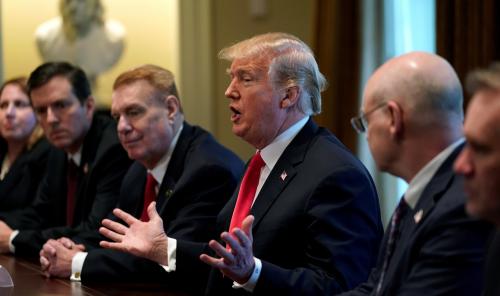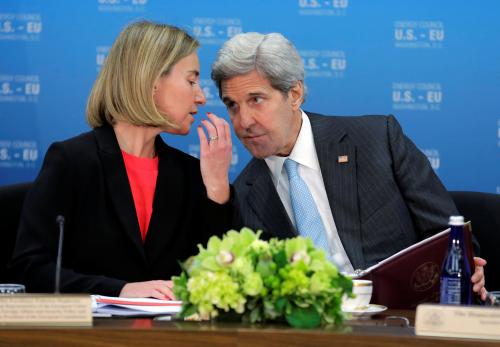According to the latest Quinnipiac survey, the American people believe that President Trump’s handling of the recent events in Charlottesville has been an unmitigated disaster. Of those surveyed, 60 percent disapprove of his overall response to these events. Specifically, 63 percent disapprove of the way Trump handles issues involving white supremacist groups, and 59 percent think that his conduct has encouraged these groups. Furthermore, 63 percent believe that these groups bear principal responsibility for the violence, compared to only 16 percent who blame the counter-protesters.
For the American people, this is not a trivial matter: 64 percent think that white supremacist groups pose a threat to the United States, and more than six in 10 of these concerned Americans regard the threat as “immediate.”
White House political operatives who hoped that Trump’s response at least would resonate with his white, working-class base must be disappointed. By a margin of 49 to 41 percent, this group of voters disapproves of his handling of white supremacist groups. About 45 percent think his conduct has encouraged these groups, compared to 3 percent who think he has discouraged them. According to the survey, 54 percent hold the white supremacist groups mainly responsible for the violence, and 59 percent see these groups as a threat to the country.
Despite these negative judgments, Trump’s job approval among white, working-class voters held steady at 52 percent compared to the previous Quinnipiac survey conducted shortly before Charlottesville. In contrast, his approval among white, college-educated voters dropped by four points from 36 percent to 32 percent, as it did among Republicans, from 81 to 77 percent, and overall, from 39 to 35 percent.
The latest poll confirms what many observers have long believed: Trump’s performance in office has squandered an opportunity to bring Americans together after an intensely divisive period in our nation’s politics. In the weeks after his election, Americans were split down the middle on the question of whether he was doing more to unite or to divide the country. But now, by a margin of 62 to 31 percent, they think he is doing more to divide than to unite us. Only 30 percent think he is bringing the right kind of change to the country, compared to 45 percent who think he is bringing the wrong kind and 23 percent who think he is not producing much change of any kind. Just 28 percent say that having Trump as president makes them feel safer, while 52 percent feel less safe.
Up to now, anyway, Trump has disappointed the American people. Only 10 percent say that he is doing a better job as president than they expected. More than three times as many—33 percent—say that he is doing worse. Even among his core white, working-class supporters, only 14 percent think he has exceeded their expectation, compared to 22 percent who think he has fallen short.
The American people have sent the president a clear message—change the way you conduct your presidency, and yourself, or risk repudiation. His defiant speech at a rally in Phoenix suggests that he has not yet gotten this message, and may never.
The Brookings Institution is committed to quality, independence, and impact.
We are supported by a diverse array of funders. In line with our values and policies, each Brookings publication represents the sole views of its author(s).








Commentary
Turning point? After Charlottesville, public support weakens for a defiant Trump
August 24, 2017